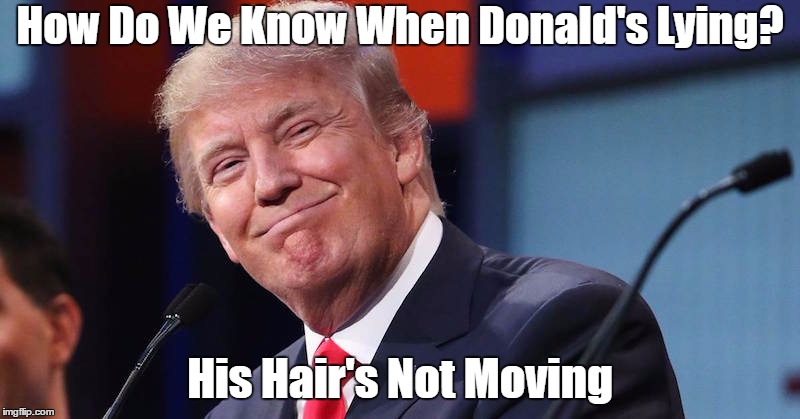DONALD TRUMP ENTERS THE “HOSPICE PHASE”
The appointment of Bannon, and departure of Manafort, suggest how a campaign might end—but a movement is only beginning.
In bringing on Breitbart executive chairman Steve Bannon as his campaign chief, Donald Trumphas delighted every journalist who feared a slowdown of campaign explosions, even if we will miss influence peddler Paul Manafort. But it doesn’t portend victory. As Wisconsin radio host Charlie Sykes summed up Bannon’s appointment: “Trump’s campaign has now entered the Hospice Phase. He knows he’s dying and wants to surround himself with his loved ones.”
Things could naturally change, because things always change. (The debates are still over a month away.) But defeat is in the air. Recently I tried to tease out what Hillary Clinton’s five-year plan might be. But what about the five-year plan for Trump? Is there even one?
We can say this much: even if Trump is elected, he’s unlikely to gun for a second term, and that’s not just because of how chaotic the first term would be. He would already be history’s oldest first-term president to take office, and, for all the comparisons to Mussolini, Trump has never betrayed a love of politics or lust for political power. He has also hinted at a one-term maximum. A few weeks ago, after Ted Cruz refused to endorse Trump in Cleveland, Trump suggested that an endorsement would have left Cruz “in better shape for four years from now.” That adds up only if A) you think you’ll lose, or B) one term is your limit.
(That’s only small comfort to Trump’s enemies, of course. Presidents can do a lot in a short span. George W. Bush managed to pack budget deficits, ABM treaty withdrawal, two wars, Guantanamo, and Abu Ghraib into one busy term. But true tyrants start politics young and stick around forever, or at least until they’re executed and hung upside down in Milan. Trump is starting too late for that sort of career.)
If he wins, Trump is clear on two points: he intends to build a border wall, and he’ll push to revisit trade agreements. Beyond that, he is vague. Given how few efforts Trump has made to bone up on policy so far, he probably plans to listen to advisors for a few minutes and wing it. In foreign policy, the realm in which he frightens people most, Trump is a question mark, perhaps also unto himself. He rejects interventionism in theory but shows none of the self-control and coolness that such a stance requires in the face of inevitable foreign provocations, and he seems to have eschewed non-interventionists as advisors. He might like to put together a peace deal for Israel, but there are few signs that he thinks about it much.
If he wins, Trump is clear on two points: he intends to build a border wall, and he’ll push to revisit trade agreements. Beyond that, he is vague. Given how few efforts Trump has made to bone up on policy so far, he probably plans to listen to advisors for a few minutes and wing it. In foreign policy, the realm in which he frightens people most, Trump is a question mark, perhaps also unto himself. He rejects interventionism in theory but shows none of the self-control and coolness that such a stance requires in the face of inevitable foreign provocations, and he seems to have eschewed non-interventionists as advisors. He might like to put together a peace deal for Israel, but there are few signs that he thinks about it much.
Given his ego and his business interests, Trump has probably been thinking as much about a post-loss future as a post-victory one. That’s especially likely if he’s in financial trouble, a real possibility. Trump’s cheapness—so fanatical that only repeated prodding by a journalist could get him to honor a million-dollar charitable pledge that Trump claimed he’d already paid—suggests there is something more than ordinary cost consciousness at work. He has flirted with financial disaster before, and he might be doing so again. If that’s the case, he’s either thinking about how to pull out of the dive or, if it’s too late, how to spin the coming crash.
There is widespread speculation, stemming from my colleague Sarah Ellison’s great reporting, that Trump is planning to launch a cable network or news outlet—or even running for that purpose. Now, nobody, not even Trump, would go through the hell of running a presidential race simply to start a television network. But starting a cable network might at least allow Trump to salvage some money and dignity after his loss. A new cable channel wouldn’t be a goal as much as a consolation prize, if one that’s more expensive than a typical decorative bowl.
Whatever Trump’s five-year plan may be, it’s now clear that it includes the possibility of defeat. That’s why Bannon is in and Manafort is out. Losing big is a humiliation, but a quixotic defeat is much less of one. Being a bold ideologue made Barry Goldwater a hero despite winning only six states in 1964, while being a cautious establishment type made Michael Dukakis a has-been despite winning 10 states in 1988. Using the language of a movement helps you save face. You can more easily say, “I lost, but our cause continues.”
In this case, with the upswing in nationalism around the globe, it’s probably even true. Trumpism has a future, and it might be brighter without Trump.

No comments:
Post a Comment